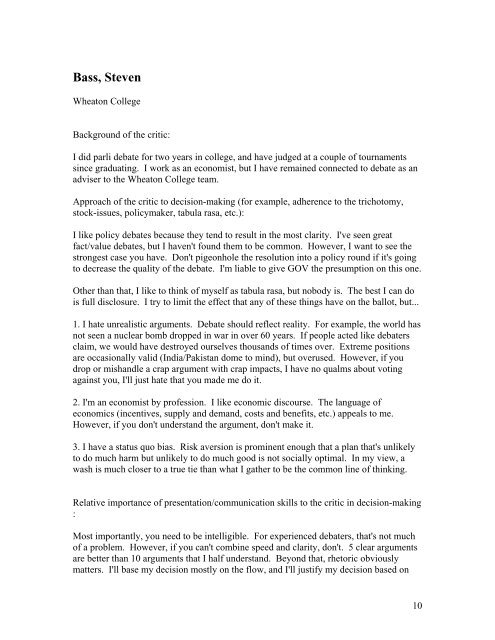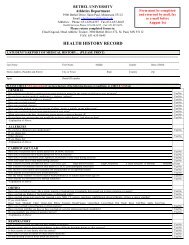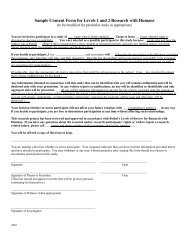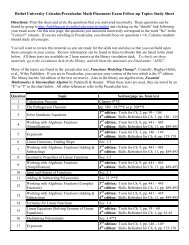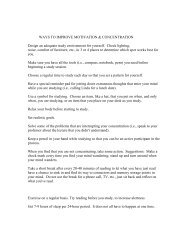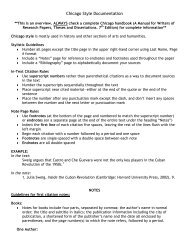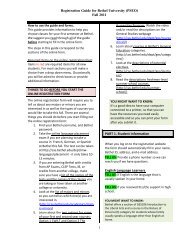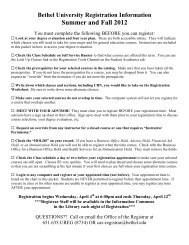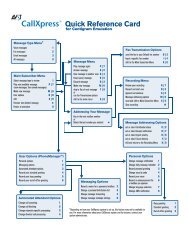here - College of Arts & Sciences - Bethel University
here - College of Arts & Sciences - Bethel University
here - College of Arts & Sciences - Bethel University
Create successful ePaper yourself
Turn your PDF publications into a flip-book with our unique Google optimized e-Paper software.
Bass, Steven<br />
Wheaton <strong>College</strong><br />
Background <strong>of</strong> the critic:<br />
I did parli debate for two years in college, and have judged at a couple <strong>of</strong> tournaments<br />
since graduating. I work as an economist, but I have remained connected to debate as an<br />
adviser to the Wheaton <strong>College</strong> team.<br />
Approach <strong>of</strong> the critic to decision-making (for example, ad<strong>here</strong>nce to the trichotomy,<br />
stock-issues, policymaker, tabula rasa, etc.):<br />
I like policy debates because they tend to result in the most clarity. I've seen great<br />
fact/value debates, but I haven't found them to be common. However, I want to see the<br />
strongest case you have. Don't pigeonhole the resolution into a policy round if it's going<br />
to decrease the quality <strong>of</strong> the debate. I'm liable to give GOV the presumption on this one.<br />
Other than that, I like to think <strong>of</strong> myself as tabula rasa, but nobody is. The best I can do<br />
is full disclosure. I try to limit the effect that any <strong>of</strong> these things have on the ballot, but...<br />
1. I hate unrealistic arguments. Debate should reflect reality. For example, the world has<br />
not seen a nuclear bomb dropped in war in over 60 years. If people acted like debaters<br />
claim, we would have destroyed ourselves thousands <strong>of</strong> times over. Extreme positions<br />
are occasionally valid (India/Pakistan dome to mind), but overused. However, if you<br />
drop or mishandle a crap argument with crap impacts, I have no qualms about voting<br />
against you, I'll just hate that you made me do it.<br />
2. I'm an economist by pr<strong>of</strong>ession. I like economic discourse. The language <strong>of</strong><br />
economics (incentives, supply and demand, costs and benefits, etc.) appeals to me.<br />
However, if you don't understand the argument, don't make it.<br />
3. I have a status quo bias. Risk aversion is prominent enough that a plan that's unlikely<br />
to do much harm but unlikely to do much good is not socially optimal. In my view, a<br />
wash is much closer to a true tie than what I gather to be the common line <strong>of</strong> thinking.<br />
Relative importance <strong>of</strong> presentation/communication skills to the critic in decision-making<br />
:<br />
Most importantly, you need to be intelligible. For experienced debaters, that's not much<br />
<strong>of</strong> a problem. However, if you can't combine speed and clarity, don't. 5 clear arguments<br />
are better than 10 arguments that I half understand. Beyond that, rhetoric obviously<br />
matters. I'll base my decision mostly on the flow, and I'll justify my decision based on<br />
10


